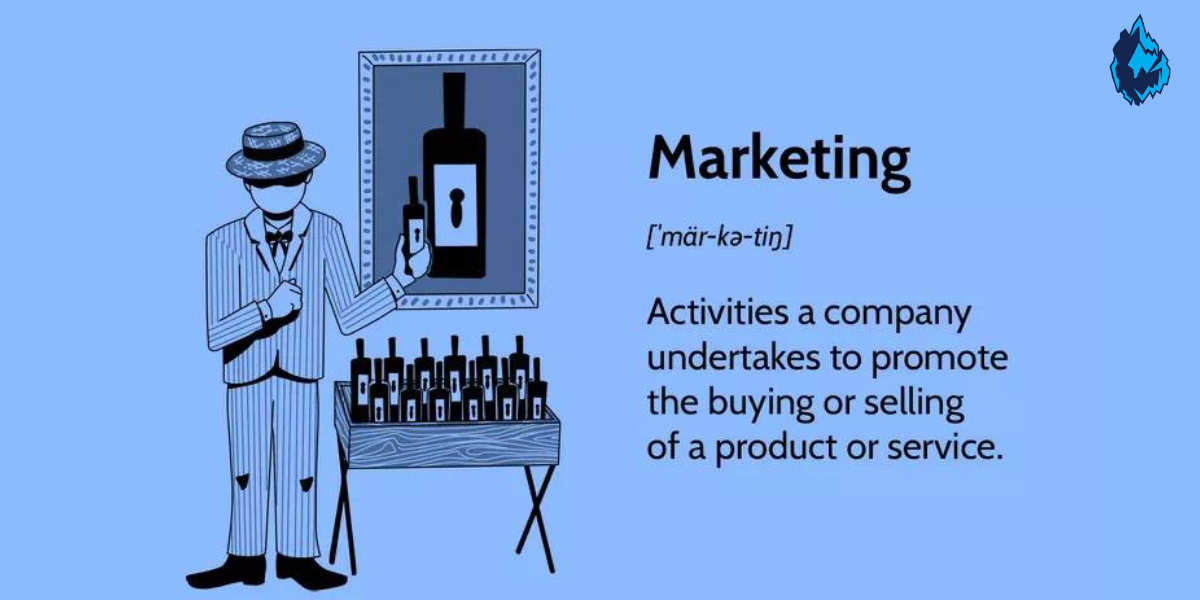Marketing is the heartbeat of every successful business venture. It’s the art and science of connecting products and services with the right audience, compelling them to take action. Whether you’re a budding entrepreneur or a seasoned business owner, understanding the intricacies of marketing can propel your brand to new heights. In this guide, we’ll delve into the essence of marketing, explore its strategies, and uncover its transformative power.
What Exactly is Marketing?
At its core, marketing encompasses a myriad of activities aimed at promoting the buying or selling of goods and services. It’s not just about advertising; it’s about crafting compelling narratives, building meaningful relationships, and delivering value to consumers. From eye-catching ads to engaging social media campaigns, marketing permeates every aspect of the business landscape.
The Goal of Marketing: Connecting with Customers
The ultimate goal of marketing is simple yet profound: to connect with customers and nurture lasting relationships. It’s about understanding their needs, desires, and pain points, and offering solutions that resonate on a personal level. Whether it’s through targeted advertisements or personalized email campaigns, effective marketing seeks to create meaningful connections that drive loyalty and advocacy.
The 4 Ps of Marketing: A Blueprint for Success
Product, price, place, and promotion – these four pillars form the cornerstone of any successful marketing strategy. Each element plays a crucial role in shaping the customer experience and driving business growth.
- Product: Your product or service is the heart and soul of your business. It’s not just about what you sell; it’s about the value you provide to your customers. Understanding your product’s unique selling points, identifying gaps in the market, and differentiating yourself from competitors are essential steps in product marketing.
- Price: Pricing strategy is a delicate balancing act. It’s about finding the sweet spot that maximizes profitability while remaining competitive in the market. Factors such as production costs, consumer perception, and competitor pricing all influence your pricing decisions.
- Place: Where and how you distribute your product can have a significant impact on its success. Whether it’s through brick-and-mortar stores, e-commerce platforms, or a combination of both, choosing the right distribution channels is key to reaching your target audience effectively.
- Promotion: Promotion is all about getting the word out and generating buzz around your product or service. From traditional advertising to social media campaigns, promotion encompasses a wide range of tactics aimed at raising awareness and driving sales.
Types of Marketing Strategies: Navigating the Digital Landscape
In today’s digital age, the marketing landscape is constantly evolving. From traditional marketing tactics to cutting-edge digital strategies, businesses have more tools at their disposal than ever before.
- Traditional Marketing Strategies: From print ads to outdoor billboards, traditional marketing tactics have been a staple of the industry for decades. While they may lack the precision and targeting capabilities of digital marketing, traditional strategies still have their place in the modern marketing mix.
- Digital Marketing: With the rise of the internet and social media, digital marketing has emerged as a powerful force in the industry. From search engine optimization (SEO) to social media advertising, digital marketing offers unparalleled reach and targeting capabilities.
- Content Marketing: Content is king in the digital age. Content marketing involves creating valuable, relevant, and engaging content to attract and retain customers. Whether it’s blog posts, videos, or infographics, content marketing can help establish your brand as a thought leader in your industry.
- Email Marketing: Despite the rise of social media, email marketing remains one of the most effective ways to reach customers directly. From promotional offers to personalized newsletters, email marketing allows businesses to engage with their audience on a personal level.
The Benefits and Limitations of Marketing
While marketing can yield tremendous benefits for businesses, it’s not without its challenges. Understanding the potential pitfalls can help businesses navigate the complexities of the marketing landscape more effectively.
Benefits of Marketing:
- Audience Generation: Marketing allows businesses to target specific audiences and attract new customers.
- Brand Creation: Marketing helps businesses establish and reinforce their brand identity in the minds of consumers.
- Financial Performance: Effective marketing can drive sales and improve overall financial performance.
Limitations of Marketing:
- Oversaturation: In a crowded marketplace, it can be challenging to stand out and capture consumers’ attention.
- Devaluation: Over-reliance on discounts and promotions can erode brand value over time.
- No Guaranteed Success: Marketing campaigns can be costly and time-consuming, with no guarantee of success.
In Conclusion
Marketing is both an art and a science, requiring creativity, strategy, and a deep understanding of consumer behavior. By harnessing the power of marketing, businesses can unlock new opportunities for growth, innovation, and success in an increasingly competitive marketplace. Whether you’re a small startup or a multinational corporation, investing in marketing is essential for long-term success and sustainability.
